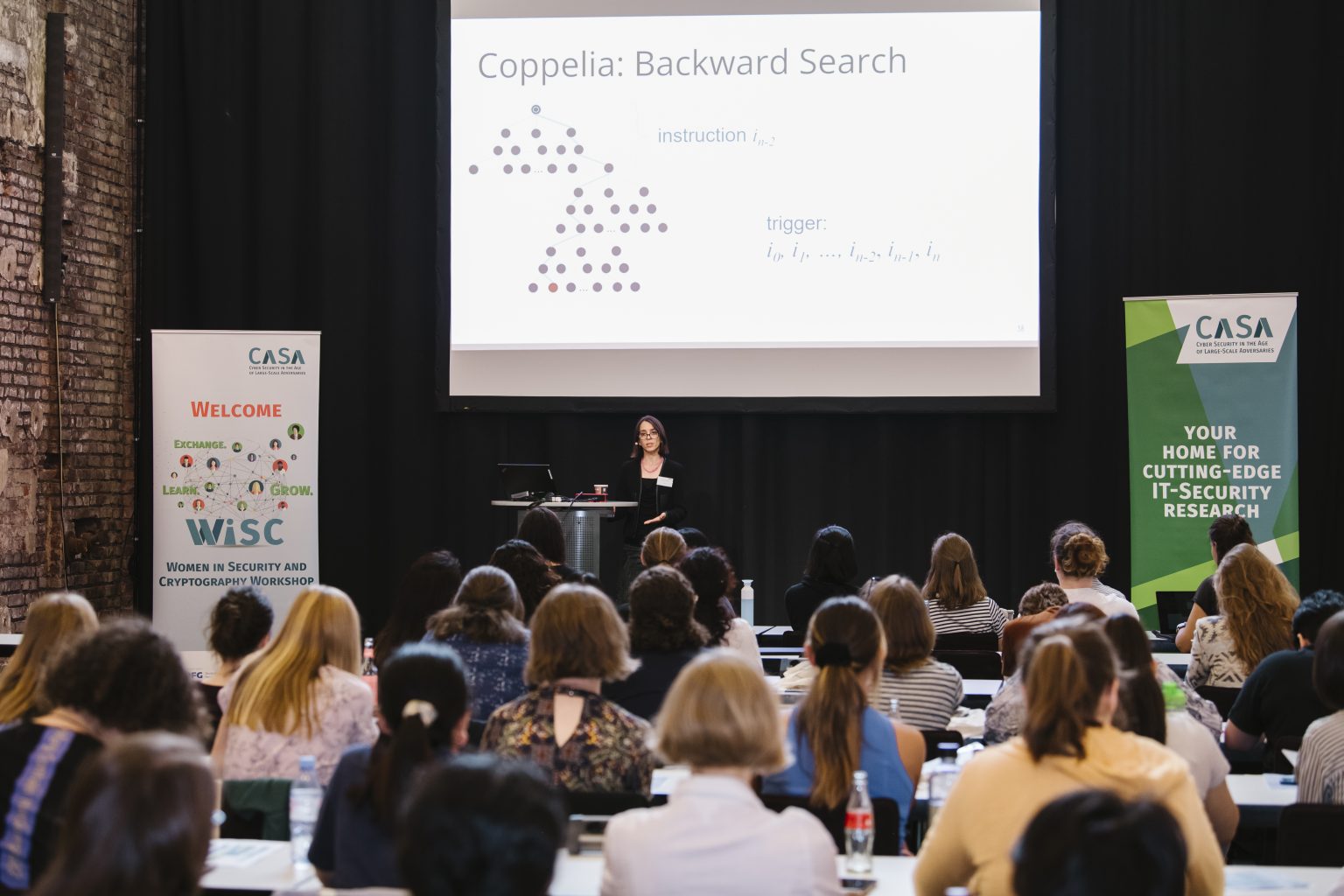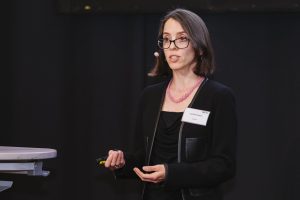
July 12, 2023
All photos courtesy of Mareen Meyer and CASA: Cyber Security in the Age of Large-Scale Adversaries
Researchers from UNC Computer Science took part in the 2023 Women in Security and Cryptography Workshop (WISC) in Bochum, Germany, sharing knowledge via a keynote lecture and building professional connections with women from 11 other countries.
The biennial workshop, which was held June 27-29, is aimed at women-identifying doctoral students in the field of information technology security, offering expert presentations and exchanges of senior and junior women/womxn researchers in the field. Over three days, attendees enjoyed a program that included lectures, mini-workshops, poster presentations, and networking activities. Participants also had the opportunity to learn more about the area of North Rhine-Westphalia, where the workshop took place.
The long-term goal of WISC is to build a strong international network of junior women researchers and create a valuable academic program for the attendees.

Sharing knowledge in hardware security
Associate Professor Cynthia Sturton gave a lecture during the workshop, one of six to be given over the course of the event. Her lecture focused on her success applying symbolic execution to the security verification of hardware designs. Verification of hardware ensures that a device operates as intended and securely, and it should take place early in the design process. Common methods of verification require trade-offs, either testing for many potential specific errors at the risk of overlooking some unanticipated issues or offering strong verification using methods that are cumbersome at a large scale.
Sturton’s approach adapts symbolic execution, a method common in software design, to help automate hardware verification. Symbolic execution involves working through a program abstractly to find groupings of possible inputs that will share an execution path through the code. This is done by generating a map of potential paths using symbols rather than concrete values, allowing for deeper and more precise exploration of the possible configurations of the system.
The major obstacle to symbolic execution is the fact that the complexity of exploring all paths can increase exponentially at each junction. This can limit the extent to which these paths can be mapped, as resource requirements grow too large or runtime becomes too long (or even infinite). This is known as the path explosion problem. Sturton and her team tackle this problem by leveraging the modular and cyclical nature of hardware.

Building connections the world over
Doctoral students Maggie Pierce and Kaki Ryan attended the workshop, which was capped at 50 participants. Neither of them had been to Germany before, and Pierce said that the event was a great opportunity to broaden their experience culturally as well as academically.
“At WISC, we grew intellectually along multiple axes, delving into technical knowledge during workshops and freely exchanging our wide range of life experiences with other participants during breaks,” Pierce said. “Despite our different backgrounds, we bonded over our shared stories as women in security. I left the conference having expanded my knowledge base, but more importantly, having made valuable networking connections.”
UNC Computer Science is committed to creating opportunities to support and advance a diverse population of computer science researchers, and events like WISC serve to not only spread research advancements and foster collaboration, but also increase visibility and belonging within the field.
